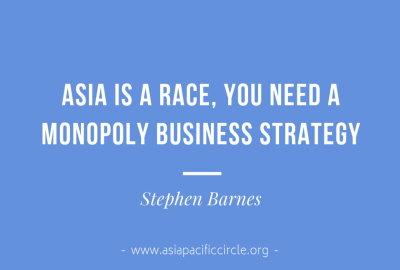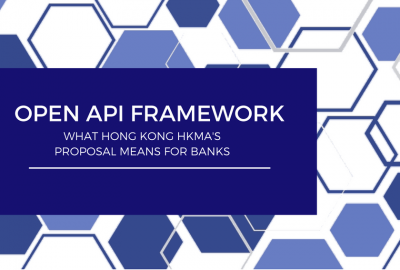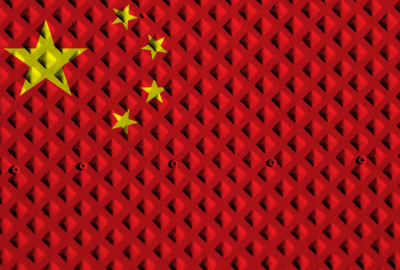Tag: Doing Business in China? Chinese Market Insights

Doing Business in China? Chinese Market Insights by The Asia-Pacific Circle
Are you already doing business in China? Or perhaps looking for insights on how to approach the Chinese market? Are you looking for contributions on digital transformation and digital technology trends? Some insights on the country’s business environment? Are you looking for more specific comments on the US-China trade relations maybe? Wondering how to leverage the strengths of Hong Kong? Or perhaps are you more interested in local financial developments?
Doing business in China is a journey for which you want to be equipped as much as possible. The good news is, The Asia-Pacific Circle regularly publishes expert business insights on the Chinese market developments. Make sure to bookmark this page! Oh, and if you can connect the dots and wish to contribute with your unique insights, we would love to hear from you.
Read our Chinese market insights:
When he arrived in Hong Kong in 2011, Antoine d’Haussy had an entrepreneurial journey in mind. A previous salesman, he became a solo-entrepreneur and developed Side by Side, an online business model for selling very tangible traveler-type of pouches now adopted by digital nomads around the world. In this interview, he elaborates on his adventure between Europe and China, and gives unique insights on how to launch and run a human size and nomad-friendly business.
In this Asia-Pacific Insight, we give voice to an interesting entrepreneurial adventure run by Ron Leeman, a Change Management expert who makes the case for establishing a professional change management and transformation body in Asia. After years of practice in Europe, Ron came to Asia seeking new challenges, and the move gave him some interesting food for thought as to how change might work in the region. This insight explores his findings.
In this Asia-Pacific Insight, luxury expert Emmanuel Sidem and Christophe Granier explore China's luxury market trends. From new purchasing behaviors and increased specialization to click and brick luxury evolution, they propose a fascinating big picture and analysis regarding what luxury will be about tomorrow. New definitions, new clients and new challenges, where is the industry going next?
In this Asia-Pacific Insight, China expert Eleonore William continues to explore the development of globalized Chinese Groups with some notes on Fosun. Originally an investment consulting business, Fosun has over the years turned into a multinational and diversified group now focusing on health and happiness.
Is there a currency manipulation policy in China? Christophe Granier analyses recent trends relating to CNY valuation. The CNY traded at its lowest level against the US Dollar in ten years, which raised currency manipulation concerns in the United States. In doing so, Mr. Granier writes, the US made a confusion between causes and consequences.
In this Insight, John Barclay and Teresa Tan (Primasia) comment on the recent enhancement of Hong Kong's Anti-Money Laundering (AML) framework. Following an initiative from the very international Financial Action Task Force (FAFT), Hong Kong has set up licensing requirements which will impact businesses. The question is how? Keep reading for more.
In this Insight, Fargo Group Managing Director and French External Trade Advisor Paul Clerc-Renaud analyzes the current technology landscape of China. Paul explores the issue through various lenses, starting with the idea that the microchip and semiconductors sector currently are China's greatest technological weakness. He considers the related strategic, market control and future development aspects of the issue, and he elaborates on those sectors in which China is at the forefront: Telecoms, ICT & Internet services or Fintechs, Artificial Intelligence and Quantum Computing. Not to forget new energies, transportation or aeronautics. He concludes, overall, on the idea that R&D and Education represent the nexus of the current technological war.
In this Asia-Pacific Insight originally published in the South China Morning Post, Philippe Bonnet and Antoine Martin comment on the recent of an EU-Asia Connectivity strategic policy proposal by the European Commission. Whilst building ties between Asia and Europe make a lot of sense from a business cooperation perspective, they write, trying to create connectivity "the European way" - i.e. by imposing a rules-based mindset to Asia - is a rather surprising idea. A change in mindsets would be interesting, however...
We recently interviewed Daniël de Blocq van Scheltinga, a Hong Kong-based M&A advisor and Circle Contributor who provided some personal insights on the Chinese M&A markets. As the first Western CEO to a Chinese State-Owned Enterprise (SOE), Daniël has a unique perspective on how large Chinese companies think and operate. Hence, his interview provides very exclusive food for thought on how to do business in China, on the reasons and consequences of current US-China relations, on China's technology ambitions, and more generally on the Belt and Road Initiative (BRI) and its long-term impacts.
In this China Business Insight, Eleonore William continues to explore and document the growth of globalized Chinese Groups, taking the case of Xiaomi. While Xiaomi is known for having put into place a "high technology accessible to all" business model, but the strategy developed by the group in order to diversify its activities, develop a robust user community and turn into an international company with a truly global reach is interesting for one major reason: it works.
Telecom talk, with Alain Lejeune (TLC Communications, BlackBerry Mobile Division): In this Chinese markets insight, Alain Lejeune explores past, current and future developments in China's Telecoms market. From the rise of a market to the development of a truly globalized telecommunication industry strategically supported under the "Made in China 2025" efforts, Mr Lejeune tells a fascinating industrial story built around innovation, forward-looking anticipation, daring business models and far-reaching investments. In case you wondered what global (and Chinese) telecoms are about, this insight is a must read. Would you like more business trends and tips from regional Asia-Pacific experts? Read our latest Asia-Pacific Insights!
In this Insight, China expert Christophe Granier continues his analysis of the maritimization policy of China. Having explored the development of a fisheries-related policy by Beijing in a previous contribution, he moves on to explore the remaining aspects of the country's sea industry. Whilst services ranging from luxury and passenger transportation to communication cables installation are likely to be the future of the maritime economy, more interesting aspects indeed deserve to be considered. All in all? Christophe Granier provides a surprising, challenging and fascinating overview of the Chinese ability to think ahead and plan.
In this Asia-Pacific business Insight, we talk about doing business in China and explore Chinese markets with Laurent Timmermans, an entrepreneur, consultant, and educator, Founder and Managing Director of the Hong Kong-based Athenasia Consulting. As an expert in Hong Kong company formation and structuration, Laurent discusses business in two main ways. First, he explains the strategic role of the city when it comes to Asia and China trade, and he provides his views on how Hong Kong competes with Singapore and other places out there. Second, he elaborates on the increasing importance of regional technology, blockchain, and digitalization developments in terms of business management. His perspective can be summarized in …
In this China Markets Insight, Entrepreneur and ConchSociety CEO Bertrand Ternat provides his views on the Asian and Chinese luxury market. Fascinated by China and eager to understand how the Chinese markets work and how the Western culture, habits, and mindsets can fit, Bertrand has learned that the best way to fail is to try and sell without making any effort to understand and fit in the system. In contrast, the best way to do business in China is to step foot in those circles and to be recognized as being valuable by those in the circles. Asia and even more China are network-based countries, don't think this is something …
In this Asia-Pacific business Insight, Hong Kong Visa Geeza expert and Intelligent Content Marketing advocate Stephen Barnes discusses the complexity of creating a sustainable business brand in the region. "Asia is a race", he says. Hence, considering the current connection economy, "you need a monopoly business strategy" if you want to maximize your odds of succeeding. With the increasing importance of the connection economy, indeed, the role of information is shifting. And you definitely want to be on the right side of the digital transformation.
In this China business insight, Eleonore William from the France China Committee analyses the Tongwei Group's diversification approach, from aquaculture to solar energy. While the Group has historically been a giant in the marine food industry, it is progressively investing in new technologies and know-how, so at to become a leading player in China's growing solar power sector. For more, make sure to read our China business insights.
Ashley Galina Dudarenok is one of the key experts and opinion leaders on digital marketing strategy and social media in China. In this Asia-Pacific Insight, she explores the question of digital transformation in China, from technology developments to marketing strategy, she explains how she sees change happening. Ashley is very optimistic about digital developments and has lots to say about digital marketing developments, but her key take is very simple: "China is the future of digital technology". Read the interview for more.
On July 18th, 2018, the HKMA released its Open API Framework as a means to promote the development of Hong Kong's Fintech, banking and financial services industry. The initiative has been commented widely, and the idea that new applications will now be made available is often used as a conclusion. In this Asia-Pacific financial insight, Antoine Martin goes through the HKMA's Open API Framework document to explain its ins and outs. After a careful analysis of the document, he concludes that the stakes are much higher than mere flexibility. Especially considering the regulatory and financial burden to be imposed on banks.
In this Asia-Pacific Insight, Christophe Granier analyses the rapid development of China's maritime economy - China's maritimization - both in terms of size and in diversity. He notes that China's maritimization is moving in (at least) three ways. One is the country's complex but powerful fisheries industry. Another relates to maritime farming and the major investments in technological development China is putting in place to acquire leadership on the matter. The third relates to China's efforts towards developing a non-fisheries-related maritime industry. Overall, Granier concludes, China's maritime industry has a promising future.
In this Insight, business strategy adviser Philippe Bonnet explores the idea that Eurasia is shifting from an underutilized geographic notion into something much bigger. Looking at recent and forthcoming developments in the Asia-Pacific, he suggests that the Europe - China relationship needs to be significantly reconsidered, together with the way Westerners think about doing business with Asia (and China). The business equation is very different from one side of the continent to the other. In Europe, business with Asia is about threat mitigation. In Asia, in contrast, business is a matter of investment. As a result, a significant change in mindset is needed for business to become a win-win matter.
Asia-Pacific Financial Markets Insights: Antoine Martin analyses the recent release of the Hong Kong Monetary Authority's (HKMA) Revised Guideline on Authorization of Virtual Banks. Hong Kong is one of the world's leading financial places, yet the city's banking offer is limited for many. This move by the HKMA creates a significant new potential from a financial services perspective, but there is more. The Revised Virtual Banks Guideline has several objectives. First, opening access to financial services to non-banks. Second, solving a market deficiency which so far has left many citizens un-banked. Third, pushing Hong Kong's Fintech policy a little further. Keep reading for more.
US - China Trade Insights: Antoine Martin and Professor Bryan Mercurio (The Chinese University of Hong Kong) discuss China - United States relations in light of recent trade developments. With the announcement of new tariffs against Chinese steel and Aluminum, President Trump has forced President Xi to react. This analysis of the'trade war' developments leads to the conclusion that the political game is changing. On the one hand, the U.S. is turning nationalistic and protectionist, even if it harms itself in the process. On the other, China is reversing the usual rhetoric and positioning itself as the god international citizen who plays by the rules. Keep reading for more.
In this Asia-Pacific financial insight, Antoine Martin comments on recent moves against Bitcoins, Initial Coin Offerings (ICOs) and crypto exchanges by China's financial authorities. From speculation controls to ambitious political projects, the relationship between China, Bitcoins and cryptocurrencies in general is complex. This Insight aims at bringing some clarity to the debate.
Asia-Pacific Fintech Insights: In may 2017 the FSDC released a Report named The Future of Fintech in Hong Kong as a means to help promoting the development of Hong Kong Fintech industry. The report has been commented widely, but it was mainly interpreted as pointing to the limits of Hong Kong's Fintech policy. In reality, however, this document is more like a business plan and roadmap on, as its title suggests, the future of Fintechs in Hong Kong. Hence, it deserves more attention.
Financial Markets: Antoine Martin comments on the introduction of Chinese companies into MSCI's Emerging Markets Index after three consecutive years of rejection
Trade Research: Protectionism has become a trendy word recently and appears to be on the rise in various parts of the world. Starting with the United States. In reality, complex negotiations have eroded trade leadership at the WTO level and the trade policy dynamics in Washington and Brussels seem significantly compromised
Asia-Pacific Financial Insights: The Hong Kong – China Bond Connect has recently made the headlines following a public announcement in March 2017 by Mainland China’s Premier that further fixed-income markets links would be established across borders. Would the news help reinforcing China’s and Hong Kong’s financial positions in the Asia-Pacific and globally? In this Hong Kong and China markets insight, Pascal Charlot and Antoine Martin analyze the recent developments and explain their financial relevance.
Asia-Pacific Insights; Protectionism, elections, territorial stakes, foreign policy has become an increasingly relevant theme lately. In 2017, in fact, the global political economy as we know it will change. Foreign policies will be altered
China - US Relations: Antoine Martin analyzes Mr Trump's TPP and Trade policy, arguing that the 'America Great Again' idea will sooner than later give China a significant leadership role
Asia-Pacific Insight: The steel industry is one of China's most significant industries, but it lives difficult times at the moment. In fact, steel overcapacity in China is not just a reality, it has become a source of diplomatic troubles. In this China insight, Antoine Martin comments on the Agreement reached by the United States and China on the matter. He concludes that little change is to be expected. Beijing has little margin of maneuver on the topic, hence overcapacity is likely to remain a burden in China-US relations.
Monetary Policy: Antoine Martin comments on recent monetary talks involving IMF Director Christine Lagarde and Central Bank Governor Kuroda regarding capital controls in China
Asia-Pacific Trade Insights: Antoine Martin comments on recent regional developments pertaining to trade negotiations in a tense APEC, TPP and FTAAP context
Whether or not China should be considered as a market economy country is a polemical topic at the moment. On the one hand, Beijing claims that it has made significant efforts to open its economy to world markets since its accession to the WTO. On the other hand, the major competing countries such as the United States or the European Union complain that such effort are not significant enough and argue that China should not be considered a market economy. In this China business insight, Antoine Martin comments on recent EU and US talks regarding the issue.
Part of the political economy challenges ahead is the evolution of trade liberalization negotiations in the Asia-Pacific region. In a comment dated June 2014, Jayant Menon (Lead Economist at the Asian Development Bank’s Office of Regional Economic Integration) actually presented a rather interesting snapshot of Asia-Pacific trade negotiations




































